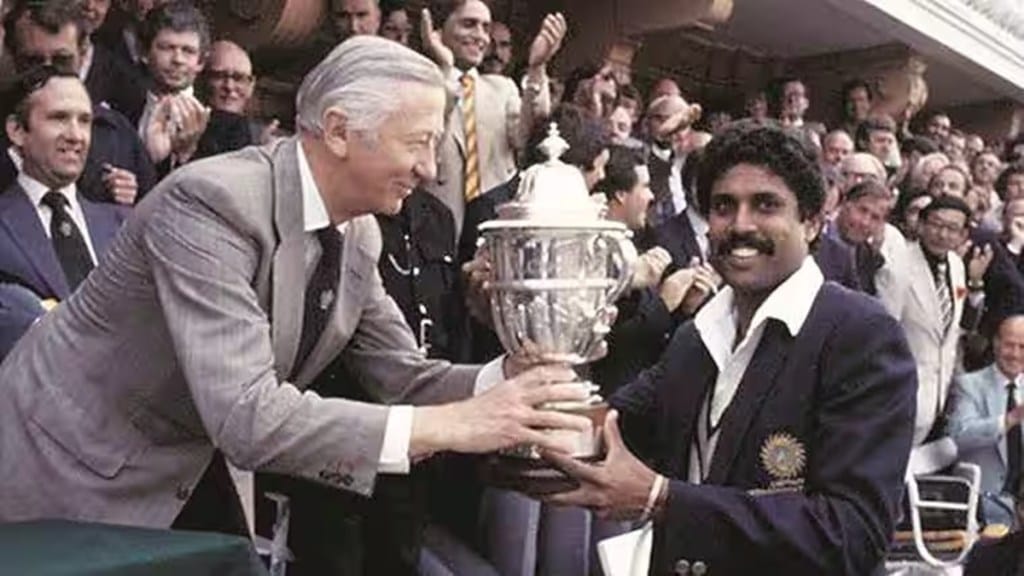In the annals of cricketing history, the year 1983 holds a special place for India. It was the year when the Indian cricket team, led by the charismatic Kapil Dev, achieved a monumental feat that would forever etch their names in the hearts of cricket enthusiasts and inspire generations to come. The year 1983 marked India’s triumphant conquest of the Cricket World Cup, a historic moment that still resonates as one of the country’s most cherished sporting victories.
The 1983 Cricket World Cup, hosted by England, featured eight teams, including the West Indies, Australia, Pakistan, England, and India. These were the teams that qualified for the semi-finals. India began its campaign with a match against the West Indies, the reigning champions and cricketing giants of the era. Defying expectations, India secured a stunning victory in that match, setting the tone for an extraordinary journey.
As the tournament progressed, India displayed remarkable teamwork and resilience, with both the batting and bowling units stepping up when it mattered the most. The legendary performances of players like Kapil Dev, Mohinder Amarnath, Sunil Gavaskar, and Ravi Shastri played pivotal roles in India’s success.
Historic Final
The pinnacle of India’s journey came on June 25, 1983, when they faced the West Indies once again, this time in the final at Lord’s Cricket Ground in London. The West Indies, known for their intimidating pace attack and formidable batting lineup, were considered the favorites to win the match and retain their title.
The beginning for India wasn’t good as they lost the toss and were asked to bat first against the formidable West Indies team. the WI team was renowned for having one of the world’s best bowling attacks, and hence, the challenge for India was set. Sunil Gavaskar, who had a relatively tough tournament, faced an early exit after scoring just two runs. The initial partnership between Krishnamachari Srikkanth and Mohinder Amarnath pushed India past the 50-run mark, but it was short-lived as Srikkanth was adjudged lbw by Marshall.
Soon after, Amarnath’s stumps were rattled by Holding, and the team added a mere eleven runs before Yashpal Sharma departed. The Indian captain, Kapil Dev, took his time, facing eight balls to reach a score of 15, but his innings was cut short as he was caught off Larry Gomes’ bowling. Kirti Azad couldn’t contribute, falling for a duck, leaving India struggling at 111/6.
Roger Binny was caught on just two runs, and it was left to Sandeep Patil to put up a fight, scoring 27 runs and taking India to a total of 153/8. The all-rounder Madan Lal played a brief innings, adding 17 runs, and the 10th wicket partnership managed to squeeze out 22 more runs before Michael Holding dismissed Syed Kirmani for 14. India’s innings concluded at 183 runs in 54.4 overs, a total that many believed was within West Indies’ easy reach.
India’s bowlers, led by Mohinder Amarnath, then displayed exceptional skills to dismiss the West Indies for 140 runs, securing a stunning 43-run victory. The moment the final wicket fell, history was made as India clinched its first-ever Cricket World Cup title.
Celebrations and Legacy
The scenes of jubilation that followed the victory were unforgettable. Indian cricket fans across the globe celebrated with immense joy, and the victorious team received a hero’s welcome upon their return to India. Kapil Dev, with the World Cup trophy in hand, became an iconic symbol of Indian cricketing success.
The 1983 World Cup victory not only marked a historic achievement in cricket but also transformed the landscape of the sport in India. It ignited a passion for cricket that transcended generations, making cricket more than just a sport—it became a way of life in the country.
The triumph of 1983 inspired a new wave of talent in Indian cricket, with players like Sachin Tendulkar, Rahul Dravid, and Anil Kumble taking up the mantle and continuing India’s cricketing legacy on the global stage.
Conclusion
The year 1983 will forever remain a cherished chapter in the history of Indian cricket. It was a year when a group of underdogs, led by Kapil Dev, defied all odds to achieve the impossible. The victory in the Cricket World Cup was more than just a sporting achievement; it was a moment of national pride and unity that united a diverse nation in celebration. It left an indelible mark on the hearts of cricket enthusiasts and serves as a testament to the power of teamwork, determination, and the enduring spirit of India.
